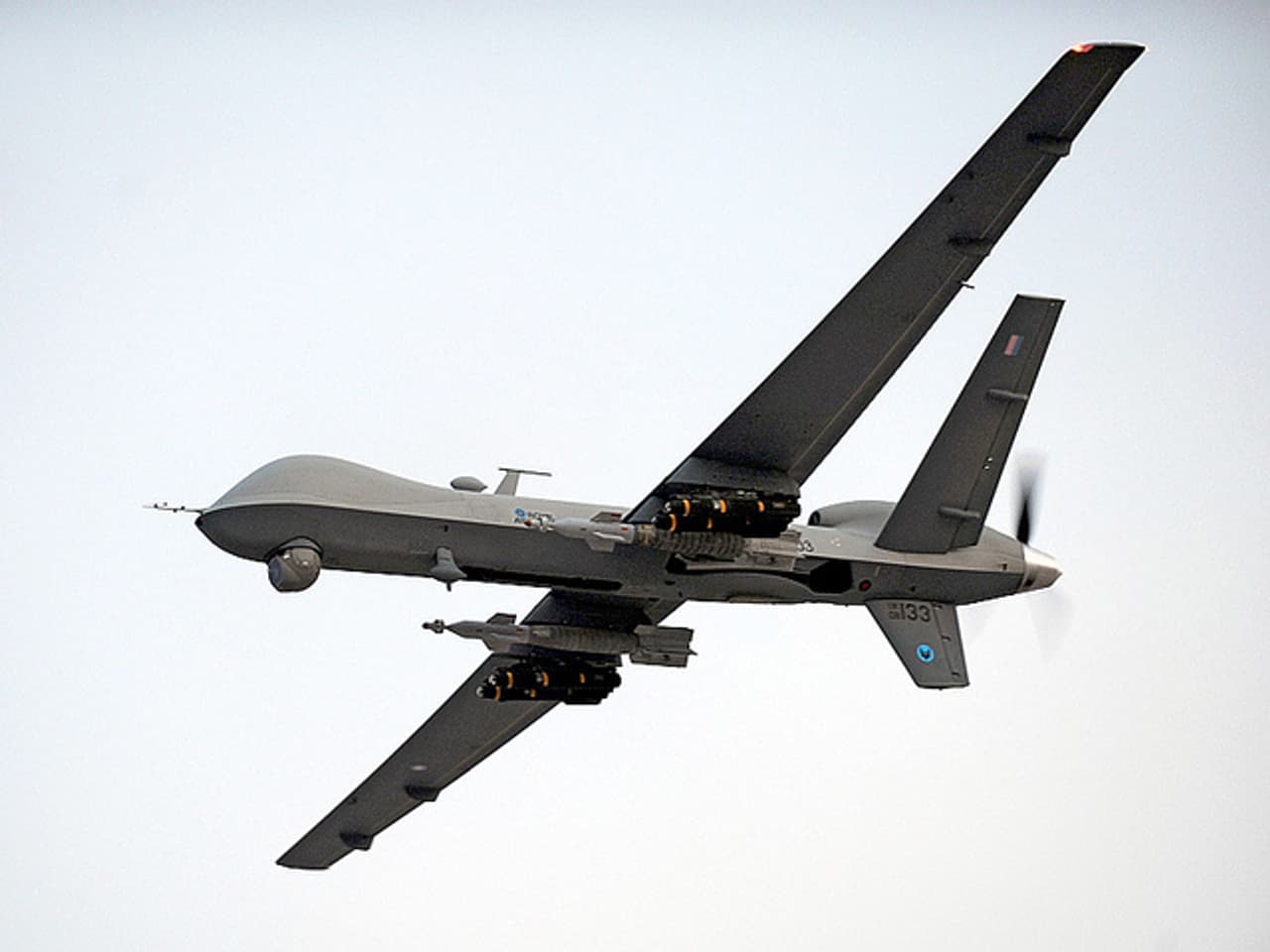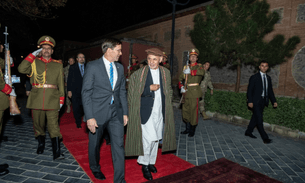
Into the drone age: Panorama on the secret war in Pakistan
Reaper unmanned drone (Photo US Dept of Defense/ Flickr)
We’re now in our eleventh year of armed drone warfare. Yet it is only in the past 18 months that public scrutiny has really focused on this high-tech form of conflict. This has particularly focused on the undeclared CIA campaign in Pakistan.
Last night’s Panorama was a comprehensive introduction to this secretive war. Reporter Jane Corbin met with the victims of the drone war in Pakistan and with its advocates. She travelled to South Waziristan, which is often out of limits to western journalists, to see the ruins of compounds bombed out by Hellfire missiles. These bombed out ruins are all the more powerful, set as they are in a stunning mountainous landscape.
She met with survivors of the infamous bombing of March 2011, when missiles hit tribal elders who had gathered to resolve a dispute over local chromite mines. This strike killed a handful of Taliban who were attending the meeting – but it also killed over 40 reported civilians, predominantly tribal elders.
Related article: The Reaper Presidency: Obama’s 300th drone strike in Pakistan
Corbin also interviewed the wounded children who had seen their grandmother die in a drone strike in October. The flat, whispered tones of a young girl, the victims granddaughter as she recounted the strike made for difficult viewing, as did the tightness in the girl’s father’s voice as he explained he was advised not to look in his mother’s coffin because she had been blown to pieces.
But most revealing of all were Corbin’s interviews with those in authority: confronting Pakistan’s foreign minister over her nation’s supposed tacit support for the strikes, she received a smooth explanation of the country’s opposition to the drones. Then why not close Pakistan’s airspace to drones? An equally fluent non-response followed.
Retired military man Admiral Dennis Blair, the director of US national intelligence during the first two years of Obama’s presidency, launched a staunch defence of the unmanned campaign, arguing that in the brutal context of war, drones caused very few civilian casualties and were a vital tool for protecting US interests.
For the Bureau’s investigation into covert drone warfare, click here
But the CIA’s campaign itself must change, he warned, unless the US wishes to find itself continuing the same campaign for another decade, continually bombing successive generations of militants, who in turn are being spurred to pick up arms by their opposition to the drone strikes. Let Pakistan pilot drones and hunt militants too, he argues – or at the very least, make this a military campaign, subject to the restraints and accountability of the army rather than the eternally secretive intelligence campaign.
Half an hour is never going to be enough time to cover a campaign that the Bureau believes has seen 354 strikes on Pakistan’s tribal borderlands, killing over 2,500 including at least 473 reported civilians. But Panorama packed in an impressive range of the key issues, offering a comprehensive introduction to drones.
Several newspapers have also covered the drone wars in recent days.
In his column in the Financial Times on Monday Gideon Rachman focused on the ‘moral uneasiness’ felt at the ‘remote, computer-game-like quality’ of drone warfare.
He talked of how Obama’s secret campaign has ‘blurred the line between war and assassination’, noting the shaky legal basis for the attacks, that it is a ‘war on terror’, as no war has been declared in Pakistan and the campaign is being conducted covertly, by an intelligence agency – not by the US military.
The Times ran a front page story on Britain’s drone pilots today. The paper notes that Britain’s own unmanned drone programme is being put at risk by ‘poorly trained’ operators, citing a military investigation conducted after an unmanned Hermes 450 (H450) aircraft crashed at Camp Bastion in Afghanistan last year, because of overheating.
The report found, among other things, that some operators were put in charge of flying unmanned spy drones after just 25 hours training. The Ministry of Defence is said to be implementing all of the report’s recommendations.
MPs will debate Britain’s involvement in drone warfare in parliament this afternoon. Shadow minister for the armed forces Kevan Jones is concerned about the lack of transparency around the drone programme. He is expected to tell the select committee:
‘Whether valid or not, there is a public perception that unmanned technology is shrouded in secrecy, which increases the potential for its demonisation. Being open about usage and codifying our policy would help confront this, and would increase accountability and transparency in the system.’
You can watch Panorma’s The Secret Drone War on BBC iplayer here.


